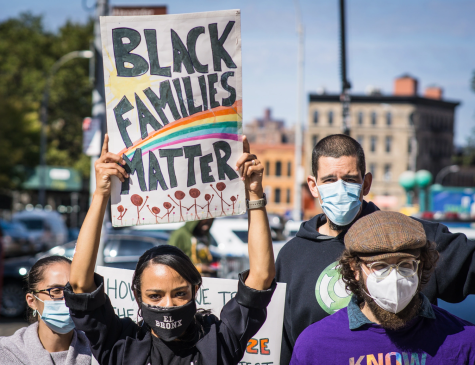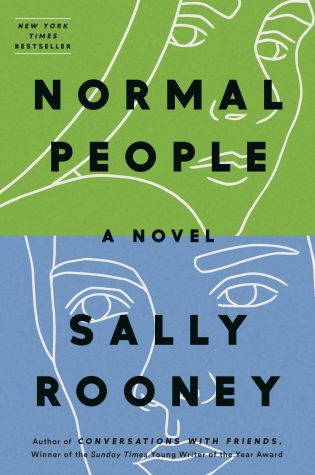Women vote on preference not gender
February 25, 2016
Earlier this month, former Secretary of State Madeleine Albright and feminist Gloria Steinem caused an uproar among younger Democratic female Bernie Sanders supporters.
Steinem accused women of going with Bernie Sanders because, “the boys are with Bernie,” while Albright warned young democratic female voters that, “there’s a special place in hell for women who do not help each other.” Both women have since apologized for their statements, but this has not stopped young feminist Bernie Sanders supporters from feeling betrayed by their remarks.
This recent controversy and the lack of support towards Hillary Clinton on behalf of young Democratic women, became especially evident following Clinton’s loss to Sanders at the New Hampshire primary.
It has placed great emphasis on the generational divide that exists between older and younger feminists, and has consequently raised questions about why and how this divide occurred.
“Hillary Rodham Clinton’s generation (notably recently Gloria Steinem and Madeleine Albright) may assume today that young women voters insufficiently appreciate the work, sacrifice and accomplishments of their generation,” Dr. Lynn Comerford, professor and director of Women’s Studies at Cal State East Bay, stated. Their sentiments express frustration and the belief that young feminists do not understand the importance of working as a gendered constituency to break down barriers to women’s equality.
Hillary Clinton’s generation of feminist women was largely composed of white women fighting for the concerns of white, heterosexual, middle class women. The concerns of white women during second-wave feminism starting in the 1960s were largely about making America less sexist, but there has since been a shift.
While Hillary Clinton’s generation once had no problem speaking for all women, they took for granted that there was an essence to being a woman. Today’s young feminists do not automatically engage in group-think, and understand that the presence of their “XX sex chromosomes” does not directly mean that their policies are feminist, meaning one’s gender does not influence one’s political, economic and social rights.
“Younger women voters, I think understand the importance of the shift to a feminist intersectional approach in which one examines how social structures in addition to gender impact one’s identity, such as race, class, sexuality, ability, ethnicity, nationality, religion, etc.,” Comerford stated.
CSUEB Kinesiology professor and feminist Dr. Rita Liberti further highlighted that the historical context under which older feminists and younger feminists have lived plays an important role in the way each generation is treating Hillary Clinton’s run for office. While she acknowledged that Hillary Clinton and her generation helped pave the way for a woman to reach the position that she currently holds, this does not directly mean that younger women are going to set aside their views and vote for her simply because she is a woman. Young feminists care more about their needs being met rather than whether their president is a male or a female.
“Young women voters want to know where Clinton and Sanders stand, for example, on college education costs, gay rights, Wall St. regulation, TPP, NAFTA and off shoring jobs, campaign finance reform and climate change, among other important issues,” Comerford explained. Young feminists who are interested in social progress are not going to set their needs aside to vote for a less progressive candidate only because they share the same gender, and they understand that of the two, Sanders is the more progressive candidate.
Although many older generation feminists may feel severely disappointed by the response or lack of support on behalf of young democratic female voters, their personal opinions on the stance of young feminists does not mean that young feminists are rejecting what it means to be a feminist.
“All feminists have different ideas,” Liberti stated. Hillary Clinton’s generation may hold a great sense of urgency to see a woman break the gender barrier in the White House, but younger feminists are less concerned with gender and more concerned with electing a candidate that supports their views and positions on important nation-wide issues.
Furthermore, while older generation feminists have waited their whole lives to witness a woman be elected president, young feminists understand that we are closer to this than we once were, but will not compromise their views and needs for the sake of finally witnessing a woman be elected into office.
”Today’s young women voters, like today’s feminist theorists, are more nuanced in their decision making because they understand that women are not a unified social group,” Comerford stated. “Both understand that women face urgent issues that go beyond gender.”
When young feminists reject Hillary Clinton, it does not translate into the rejection of feminism.
Their preference for Sanders simply implies that they believe he will be better for women, for men, for families and for the country as a whole.
















